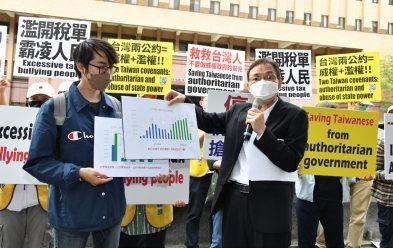

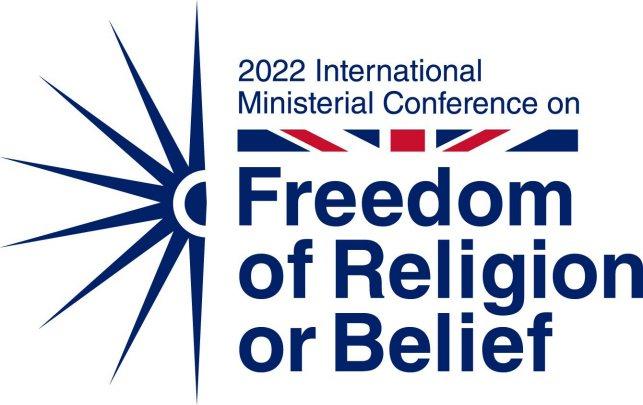
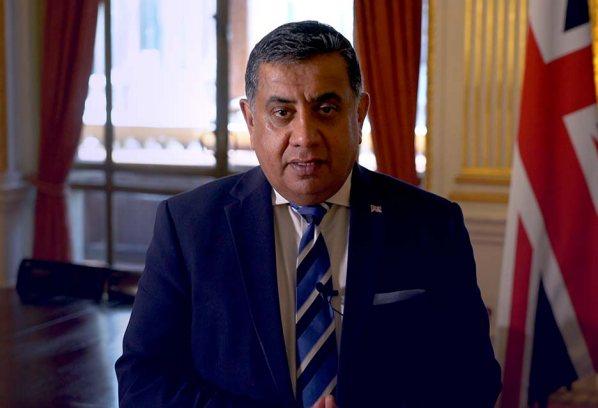


SPAIN, SPECIAL FORB EDITION, JUNE/JULY 2022 SPECIAL EDITION ● WWW.EUROPEANTIMES.NEWS ● 20 PAGES ● FREE “2022 MINISTERIAL CONFERENCE ON FORB: LONDON - IS THERE A MEANINGFUL ROLE FOR CIVIL SOCIETY?” PAGE 4 UKRAINE: MEMBERS OF FRENCH FEDERATION IN RUSSIA HAVE ACTIVELY SUPPORTED THE WAR PAGE 8-9 FORB IN SHARP DECLINE IN ASIA, SAYS EUROPEAN PARLIAMENT REPORT PAGE 18 15 JEHOVAH’S WITNESSES SENTENCED TO PRISON TERMS SINCE 1st JANUARY IN RUSSIA PAGE 12-13 Taiwan made the two United Nations human rights Covenants part of its domestic legislation in 2009. Periodically, the government asks independent experts to assess its compliance with them. The last Review Conference was held in May. Problems remain in the fields of freedom of religion or belief and tax justice, as demonstrated by the Tai Ji Men case, still unresolved after more than 25 years. See page 10 TAI JI MEN CASE: A TEST FOR TAIWAN’S COMPLIANCE WITH THE TWO COVENANTS Meet this year’s Alberigo Awards See page 16 2022 ANNUAL CONFERENCE OF EUROPEAN ACADEMY OF RELIGION STARTS IN BOLOGNA WITH OVER 120 CONFERENCES IN 3 DAYS. PRESIDENT CADEDDU SAYS: “Religious diversity offers [...] a wide spectrum for scholars working on its facets and impact on the public and intimate life of people” “Being denied the fundamental human right of freedom of religion or belief can be devastating for individuals and communities” Lord Ahmad
OUR TEAM
CHIEF EDITOR
Dr. Petar Gramatikov
Contributing Team:
Juan Sánchez Gil
Robert Johnson
Gaston de Persigny Charlie W. Grease
Willy Fautré
Jan Leonid Bornstein
© 2022 The European Times News. F-MV-CS. All rights reserved, The European Times is a trademark registered in the European Union.
Calle Puerta de abajo 16 Alpedrete 28430 Madrid contact@europeantimes.news
The European Times is an online newspaper with a Spanish view on globlal and European matters. On certain occasions we may do special paper editions.
We accept external contributions specially from members of civil society, that otherwise are not given a space.
The European Times NEWS aims to cover news that matter to increase the awareness of citizens all around geographical Europe. Here you find the facts that many don´t dare to publish. The opinions that many try to hide. If you have news that you want to be known, this is a place. We have a strict policy against fake news.
DISCLAIMER OPINIONS: The opinions of the authors or reproduced in the articles are the ones of those stating them and it is their own responsibility. Should you find any incorrections you can always contact the newsdesk to seek a correction or right of replay.
Images belong to their author, owners or licencees.
EVERYONE HAS THE RIGHT TO FREEDOM OF THOUGHT, CONSCIENCE, AND RELIGION
Universal Declaration of Human Rights 1948 (UDHR), Article 18:
Everyone has the right to freedom of thought, conscience and religion; this right includes freedom to change his religion or belief, and freedom, either alone or in community with others and in public or private, to manifest his religion or belief in teaching, practice, worship and observance.
International Covenant on Civil and Political Rights 1966 (ICCPR), Article 18:
Everyone shall have the right to freedom of thought, conscience and religion. This right shall include freedom to have or to adopt a religion or belief of his choice, and freedom, either individually or in community with others and in public or private, to manifest his religion or belief in worship, observance, practice and teaching.
No one shall be subject to coercion, which would impair his freedom to have or to adopt a religion or belief of his choice.
Freedom to manifest one’s religion or beliefs may be subject only to such limitations as are prescribed by law and are necessary to protect public safety, order, health, or morals or the fundamental rights and freedoms of others.
The States Parties to the present Covenant undertake to have respect for the liberty of parents and, when applicable, legal guardians to ensure the religious and moral education of their children in conformity with their own convictions.
In general, according to the UN Human Rights Committee (HRC), the treaty body that reviews compliance with the ICCPR:
Article 18 of the ICCPR protects theistic, non-theistic and atheistic beliefs. The terms “belief” and “religion” are to be broadly construed. Article 18 is not limited in its application to traditional religions or to religions and beliefs with institutional characteristics or practices analogous to those of traditional religions. The Committee therefore views with concern any tendency to discriminate against any religion or belief for any reason, including the fact that they are newly established, or represent religious minorities that may be the subject of hostility on the part of a predominant religious community.
—Human Rights Committee (HRC) General Comment No. 22 (1993)
European Convention for the Protection of Human Rights and Fundamental Freedoms 1950 (ECHR), Article 9:
Everyone has the right to freedom of thought, conscience and religion; this right includes freedom to change his religion or belief and freedom, either alone or in community with others and in public or private, to manifest his religion or belief, in worship, teaching, practice and observance.
Helsinki Final Act 1975, Principle VII:
The participating States will respect human rights and fundamental freedoms, including the freedom of thought, conscience, religion or belief, for all without distinction as to race, sex, language or religion.
UN Declaration on the Elimination of All Forms of Intolerance and of Discrimination
Based on Religion or Belief 1981 (UN 1981 Dec.), Article 1:
(1) Everyone shall have the right to freedom of thought, conscience and religion. This right shall include freedom to have a religion or whatever belief of his choice, and freedom, either individually or in community with others and in public or private, to manifest his religion or belief in worship, observance, practice and teaching. (2) No one shall be subject to coercion which would impair his freedom to have a religion or belief of his choice. (3) Freedom to manifest one’s religion or beliefs may be subject only to such limitations as are prescribed by law and are necessary to protect public safety, order, health or morals or the fundamental rights and freedoms of others.
2
AND AIMS THE EUROPEAN TIMES • JUNE/JULY 2022
SPECIAL FREEDOM OF RELIGION OR BELIEF
By Francesca Cadeddu, President of the European Academy of Religion Università di Modena e Reggio Emilia Fondazione per le science religiose (FSCIRE)
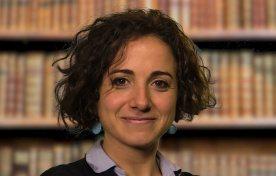
Diversity characterizes internal dynamics and external relations of all religious faiths in their different dimensions: texts – in their origins, exegesis, hermeneutics, critical editions; cults – in their anthropology, esthetics, adaptations; norms – in their sources, implementation, collection; doctrines – with their languages, narratives, transmissions; practices – in their motivation, evolution, connection or antagonism with other societal actors. A complex system with multiple variants that is usually reduced to a “dialogic dimension” which finds its most visible reasons and outcomes in the way societies transform and represent it into their political, juridical, and social systems, but also in the ways that the faith communities generate dialogue or conflict within themselves and towards other communities (religious and nonreligious).
Religious diversity offers, therefore, a wide spectrum for scholars working on its facets and impact on the public and intimate life of people, social attitudes and behaviors, political choices and instances, and cultural and economic dimensions all along the history, from classical religions to more recent aspects.
Theologies, history and historiography, law and its political implementation, political
balances, social practices and relations, cultural approaches and sensibilities have a role in describing, defining, ruling, and representing religious diversity in the varieties it assumes in different times and places. They have a role in constructing paradigms, identifying processes of accommodation, justifying conflicts, promoting change, detecting languages, and driving understanding.
The questions that this year’s overarching topic will address are:
• How the past of diversity has been and still is re-elaborated to deny or boost violence?
• How diversity became, since the classical cultures, a reason to close or open the divide between public power and the religious understanding of it?
• How can religious diversity be detected and critically identified through indirect sources like international treaties, constitutions, laws, and artistic representations from the antiquity onward?
• What role education had all along its history until today and with the most different paradigms in shaping and/or managing religious diversity?
• What linguistic paradigms are (de)coded to manage diversity in given cultural areas?
• How did theologies and doctrines develop and are still developing towards the shaping of languages and practices of diversity? ■
By UK Minister of State Lord Ahmad
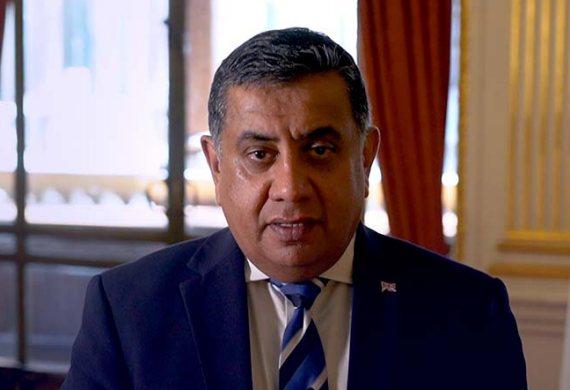
I’m sincerely looking forward to welcoming our partners and friends from around the world to London in early July for the United Kingdom-hosted Conference on Freedom of Religion or Belief.
This will be the first international ministerial conference on this theme since 2020 and the first to take place in person since 2019.
Together with our international partners we share a collective commitment to freedom of religion or belief for everyone, everywhere.
This is an issue that we all should care about. Although the right to freedom of religion or belief is enshrined in Article 18 of the Universal Declaration of Human Rights it is regrettable, indeed tragic, that too many people around the world continue to live in fear of persecution on the basis of what they choose to believe or not to believe, or indeed how they choose to practice those beliefs.
Being denied the fundamental human right of freedom of religion or belief can be devastating for individuals and communities.
At the conference we’ll therefore hear from survivors directly on the impact that persecution has had upon them, on their lives, on their communities.
As individuals suffer from being denied this human right, societies, countries where survivors live suffer too.
They become smaller, diminished culturally and spiritually by this lack of freedom. T
herefore, let us strengthen all of our communities by driving forward the collective importance of not just promoting this important issue, but strengthening freedom of religion or belief for all.
This conference in London will bring together ministers, but also importantly other representatives from government, from faith and belief group leaders, and indeed importantly from civil society as well.
Alongside the official ministerial conference, an associated conference fringe will see a series of events organized directly by civil society.
These will be taking place around the United Kingdom and provide further opportunities for all to join this important debate and discussion and learn from each other about this important issue.
I therefore hope that you will take this opportunity to really get involved and share our collective commitment to promoting and protecting, and indeed strengthening freedom of religion or belief for everyone across the world. ■
3
EUROPEANTIMES.NEWS • JUNE/JULY 2022
“Being denied the fundamental human right of freedom of religion or belief can be devastating for individuals and communities”
“Religious diversity offers [...] a wide spectrum for scholars working on its facets and impact on the public and intimate life of people”
European Academy of Religion - Annual Conference 2022 Religion and Diversity 20–23 June, Bologna, Italy
Internationsl Ministerial on Freedom of Religion or Belief 5-6 July, London, Great Britain
www.europeanacademyofreligion.org bit.ly/UKFORB2022
ON
IS THERE A MEANINGFUL ROLE FOR CIVIL SOCIETY?
 By Juan Sánchez Gil.
By Juan Sánchez Gil.
In today’s world where communication and information are easily exchangeable, we can witness many examples of religious discrimination throughout the world. The Ministerial is an excellent opportunity to bring these issues to the forefront and address them in an open forum.
The fight of religionists throughout the ages has been a long and complex one where rights and privileges have long been afforded or denied according to the culture of the predominant peoples of an area. Sometimes this has been tolerant and sometimes brutally violent for those of different minority religious persuasions.
Why is it that a religion is so closely guarded by the heart, that a man will fight to the death for it; for the principle of practising one’s own religion; for not being subjected to the interpretation of another’s concept of godliness?
And logically, why should we even fight over it, yet man does, often quite catastrophically so.
If we are beings that have existence beyond a body, then that clearly relegates the body to a lesser importance. It goes to the very identity of an individual, the core of self and what greater ultimate purpose and relationship one has in this universe. If one feels beholden to a greater agency more than the governments of man then is it justified for governments to impose that vision on others who do not behold it?
Most of us who have a genuine sense of God have one that is an all-encompassing vision that could not exclude others, regardless of their faith or none. Yet clearly not all have such a vision and others have a vision that leads to hate, discrimination and exclusion of those not of the same persuasion. After thousands of years of society we have only relatively recently constructed a comprehensive quasi-legal frameworks in which to live and those frameworks are today embodied in the Universal Declaration of Human Rights, the European Convention on Human rights and the African Charter on Human and People’s Rights (the latter often ignored and not mentioned by more Westernised sources and likely a blind spot for the West’s imposition of it’s own culture through slavery and colonialism of the African continent).
The principles embodied in these Declarations and Conventions are undoubtedly the broadest that have been produced amongst all earlier civilisations.
Certainly, many aspects of what we can call ‘humanity’ or care and respect for one another have been reflected and embodied in a great many cultures and religions but none have produced such an overview nor had the broad general agreement of most countries of the world, nor had the independence of reflecting a non-religious view of things yet upholding standards common to all.
But there is a long way to go from words to deeds and this is why this initiative called the Ministerial on Freedom of Religion or Belief is being held in London with Ministers, government representatives and civil society should be of great significance and importance to show that governments really mean business when it comes to ensuring religious equality for all.
We have never had before, in our civilisations, such a determined and consistent (this being the 3rd conference) attempt to bring together government representatives responsible for religion together with the purpose of achieving parity for all religions.
Let us hope this is not wasted. By June 13th, less than a month to go before the opening of the Ministerial the program was still quite vague on the “official part”, and the civil society aspect of the conference was still somewhat in confusion.
At June 13th, which is when this article is sent for publication, nothing has been made public about who will be able to hold events in what is called the ‘Fringe floor’ –an area of the conference centre which is expected to be given to civil society.
Who has been granted the ‘right’ to exhibit and hold events there is a closely guarded secret, if indeed any final determinations have been made at all about it.
For it is likely only a small part of civil society will be granted access to this area, and reportedly, nobody from civil society had still received (3 weeks before) the needed formal invitation
As a consequence some of those who finally received an invitation, maybe did not manage to find flights or hotels that they could book with the short time being given, or some who were confident to receive it, booked ahead of time and maybe lost their money because no invitation was received.
Of course, groups are able to, and encouraged to hold events anywhere around the UK which would support their aims in achieving freedom or religion or belief, and this will certainly be done.
But it is hardly likely that it will reach far into the members of the conference itself. The concern by many is that those ‘allowed in’ to the conference centre will be restricted to a ‘chosen few’ and whilst there are clearly security concerns to be taken into consideration it may lead to something of an Insiders Club excluding many who have views considered less correct or informative (though by what criteria this is to be determined is unknown) and so inhibit the reach towards the many government delegates who will be present, in order to not make it too uncomfortable for them.
This Ministerial is an excellent opportunity for open discussion and to develop ways in which to address the multitude of issues relating to religious freedom.
Let us hope that the UK government has managed to ensure that we do have an inclusive and open discussion about FORB and that all sectors of civil society are able to participate meaningfully.■
4 THE EUROPEAN TIMES • JUNE/JULY 2022 2022 MINISTERIAL CONFERENCE
FORB: LONDON
FAITH LEADERS HAVE A ROLE TO PLAY IN SHAPING GLOBAL FINANCE AND ECONOMY
New York, NY – June 13, 2022
The World Evangelical Alliance (WEA) just published the nine proposals for action that Secretary General Bishop Dr. Thomas Schirrmacher presented virtually at the 5th Faith-Based Investment Conference of the Geneva Agape Foundation held earlier this year. The conference was co-hosted by FaithInvest, the World Council of Churches and the World Evangelical Alliance’s Business Coalition, and
There is a role for faith leaders in shaping global finance and the economy:
9 Proposals for
By Thomas Schirrmacher
The following proposals are offered as the potential foundations for a joint Christian traditions program of systematic development of the use of our assets for the greater glory of God and life on earth:
If we as religious leaders and faith organizations fail to speak about finance and the economy, we are ignoring an important part of human life and reality and such ignoring means we fail to influence major decision makers.
highlighted the role of faith leaders in shaping global finance and economy.
“The world’s major faiths, especially the Christian traditions, have a vital role to play in changing the way in which assets generally and investment in particular can play a role in creating a more just and sustainable world,” states Rev. Timo Plutschinski, Director of the WEA Business Coalition.
The proposals for action are included below.
Finance and the economy are so powerful and so interwoven with
science, and even religion that
addressing these areas actually means
fully or properly addressing politics,
or religion at all.
How can one speak up on hunger, creation care, children’s, and women’s
or any of the 17 United Nations
goals (SGs) if one leaves finance out?
There are global actors in the financial and economic realm who, by themselves, are larger and more powerful than most national governments.
. Leaders in the financial world often look to religious leaders for ethical, moral, and spiritual guidance, and we
“The world’s major faiths, especially the Christian traditions, have a vital role to play in changing the way in which assets generally and investment in particular can play a role in creating a more just and sustainable world”
Rev. Timo Plutschinski, Director of the WEA Business Coalition
should be equipped to provide it. Many of our adherents ask for similar guidance, as everyone has some financial-related concerns, regardless of whether their net worth is very large or very small.
Global religions and their leaders can often speak independently and across national borders and politics and are thus able to interact effectively with global finance actors.
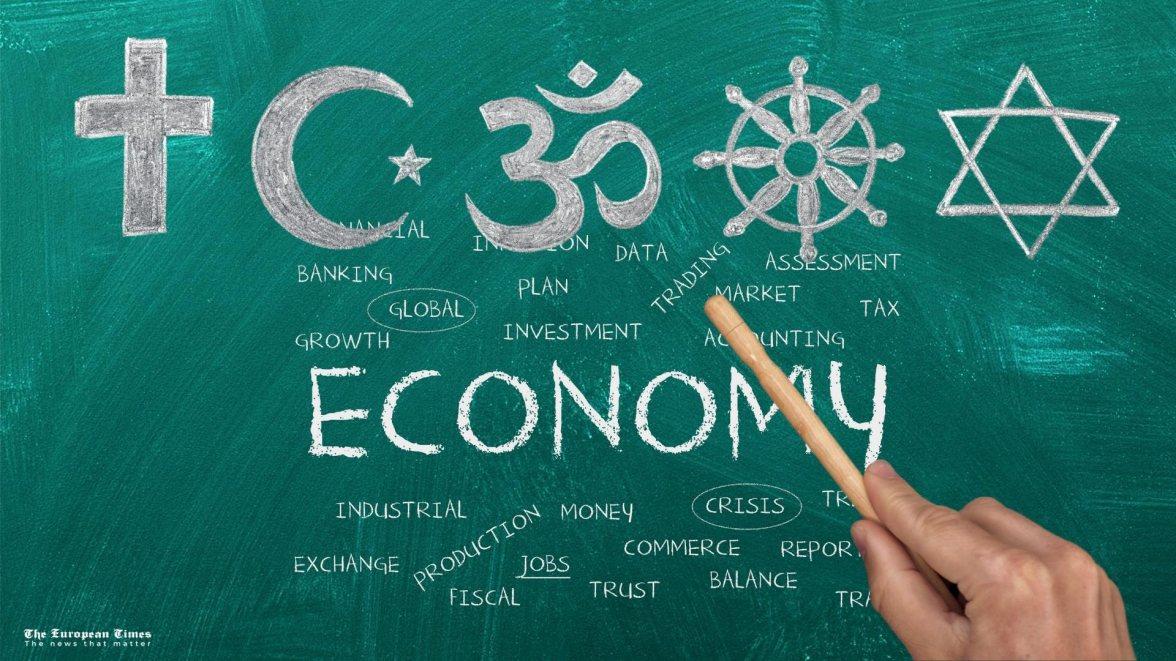
Religious leaders do not need to run for election, and, in many cases, their jobs and financial support are not directly dependent on their popularity. Thus, they can more easily speak up without being punished or threatened with loss of their positions. If they do not speak up on important issues in finance and the economy, who else should do it – and what
a betrayal of having such vital roles on behalf of our communities?
Religious leaders and faith actors can be misguided or even act immorally, but for the most part, they have the integrity and the moral-spiritual framework to live in a way that models how they believe all of society should live including g the area of finance.
The Christian belief that salvation and personal spiritual renewal can overcome corruption (i.e., the misuse of power for private gain) is a theological concept with far-reaching consequences for finance and the economy, as it recognizes the problems of greed and envy and also recognizes that the solution to these problems lies in people’s hearts, not just in how a government is structured.
■
5EUROPEANTIMES.NEWS • JUNE/JULY 2022
action
1.
2.
politics,
not
not
science,
3.
rights,
sustainability
4.
5
6.
7.
8.
9.
2/3 OF US COLLEGES & UNIVERSITIES LACK STUDENT GROUPS FOR MUSLIMS, JEWS, HINDUS OR BUDDHISTS
interested in forming Buddhist, Hindu, Jewish and Muslim student groups.
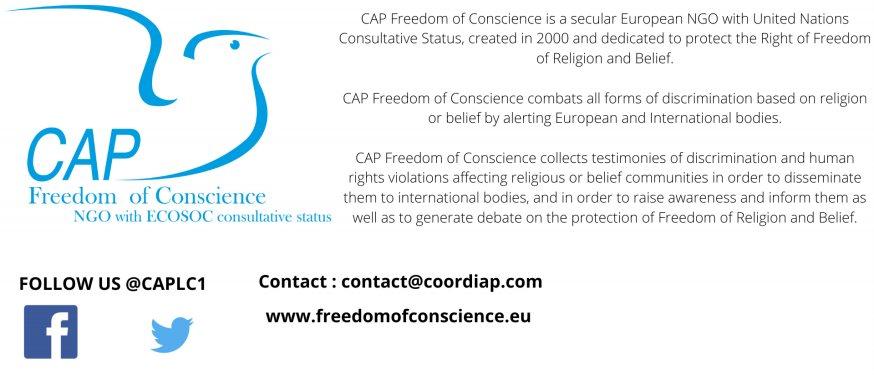
Finally, certain types of institutions are more likely to have minority religious student groups.
The big idea
Most U.S. colleges and universities lack minority religious student groups for Buddhist, Hindu, Jewish and Muslim students.
This is according to our new peer-reviewed study about officially recognized minority religious student groups across 1,953 fouryear not-for-profit colleges and universities in the United States.
Colleges and universities across the U.S. typically maintain databases of all student organizations on their campuses.
By analyzing those databases, we found that Muslim student groups are located at only 28% of U.S. colleges and universities, while Jewish student groups are at just 25% of U.S. colleges and universities.
Additionally, Buddhist and Hindu student groups are each represented at 5% of colleges and universities.

And 66% of U.S. colleges and universities lack any type of minority religious student group.
Using U.S. Department of Education data, we also identified characteristics of schools that are home to one or more minority religious student groups.
We found that the presence of minority religious student groups is partly due to institutional resources.
For example, schools with large endowments tend to have more minority religious student groups than schools with smaller endowments, partly because wealthier schools employ more student affairs professionals. Those professionals’ jobs are to support student organizations on campus. Also, wealthier schools often provide funds to student organizations.
Beyond providing staff and money, schools with larger numbers of students have more minority religious student groups.
This is likely because schools with larger student bodies have more students
We found that approximately 40% of public colleges and universities have minority religious student groups, while only 27% of private Christian colleges and universities have minority religious student groups.

This is partly because private Christian colleges or universities are legally allowed to discriminate against non-Christian students, including by refusing to recognize non-Christian student groups. Buddhist, Hindu, Jewish and Muslim students may also avoid attending Christian colleges and universities in the first place.
Why it matters
Research shows that minority religious student groups can provide Buddhist, Hindu, Jewish and Muslim student groups “safe spaces,” even in places where they do not feel welcome.
For example, after 9/11, Muslim students faced abuse and harassment on some college and university campuses.
Muslim student groups supported these
students by providing them with advice on how to navigate unwelcoming campus environments.
Minority religious student organizations also play important roles in transforming their campuses’ policies in ways that make those campuses friendlier to students from minority faiths.
For example, national-level organizations such as the Muslim Students Association and Hillel International instruct leaders of local college chapters on how to establish prayer rooms on their campuses.
They also provide guidance on how to persuade schools to serve halal or kosher meals, foods that conform to Muslim or Jewish dietary regulations, respectively.
The fact that most colleges and universities lack minority religious student groups means that many students lack resources that could make them feel more welcome on their campuses.
What still isn’t known
When researchers interview leaders or members of student groups, they often identify practical strategies and tactics that students use to form and grow organizations on campus.
However, because of our reliance on quantitative data, we don’t know how the strategic thinking and leadership capabilities of Buddhist, Hindu, Jewish and Muslim students may have contributed to the establishment of groups on their campuses.
What’s next
Future research could take a look at the characteristics of schools that have the largest or most active minority religious student organizations.
Subsequent research could also identify characteristics of the most effective minority religious student groups.. ■
6 THE EUROPEAN TIMES • JUNE/JULY 2022
Originally published at TheConversation.com
IN JUNE 2022 A VICIOUS & SAVAGE ATTACK TOOK PLACE IN DISTRICT JHELUM WHERE AHMADI MUSLIM GRAVES WERE DESECRATED
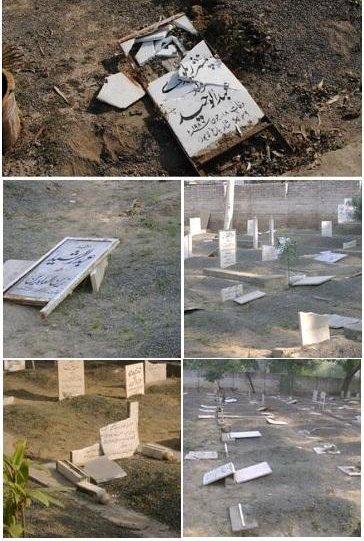 By Robert Johnson Investigative Reporter specialized on Extremism.
By Robert Johnson Investigative Reporter specialized on Extremism.
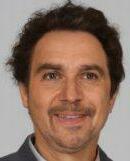
The Ahmadiyya Muslim Community has a long history of persecution and mistreatment by various governments and organisations. Their members are routinely killed in the most barbaric ways, denied basic human rights, and are subjected to vicious propaganda campaigns in several countries. Pakistan may be the only signatory of the International Convention of Civil and Political Rights (ICCPR) who, despite the availability of means to protect and safeguard the human rights of its citizens has reportedly not only failed to perform its duties rather it has become a tool of usurpation of rights of Ahmadiyya Community.
The worst cases are found in Pakistan where being an Ahmadi Muslim is itself a crime. In 1953 radical religious leaders spearheaded a countrywide anti-Ahmadiyya campaign which resulted in rioting against Ahmadis in which many innocent Ahmadis were murdered. Ahmadis were declared “not Muslims” by the state in 1974, and so started the unfortunate saga of vicious state sponsored persecution of Ahmadi Muslims.
In 1984, laws were passed to amend Pakistan’s Penal Code which meant that the act of “posing” as Muslims by Ahmadis was declared an offence punishable by fines and even death. Keeping a copy of the Holy Qur’an is also a crime and so is writing the Kalima - the Muslim declaration of faith.
Although the Constitution of Pakistan guarantees the right of its citizens to practice and propagate their religion (Article 20) but this guarantee has been violated by every organ of the State and Ahmadi Muslims are not allowed to practice and propagate their faith.
Through a number of presidential orders and constitutional amendments, the legislature of Pakistan has approved and encouraged religious hatred which has become prevalent in the society. A large number of criminal cases have been registered against Ahmadis and many have to undergo imprisonment, torture and even death.
Even in death however, Ahmadis are not safe, and the basic respect which is expected to be afforded to the deceased is disregarded. In June 2022 a vicious and savage attack took place in District Jhelum where Ahmadi Muslim graves were desecrated, and minarets of their mosque demolished. It is a regular occurrence.
There is a long series of horrific incidents against Ahmadis. An 11-year-old Ahmadi boy Tanzeel Ahmad Butt was abducted and brutally killed by his neighbours in Lahore in 2020. He was suffocated and his body hidden in a trunk. Multiple Ahmadi Muslims were gunned down in cold blood. Some victims were doctors and professors who were just going about their daily business in serving their country. Just this year, an Ahmadi in his thirties was stabbed to death in front of his two children by an extremist student of a religious seminary. In another incident in Peshawar a grave of an Ahmadi was dug out and his body remains were thrown out.
Marginalisation of an Ahmadi Muslim starts from the very early years of life. In schools
and colleges, the social boycott of Ahmadi students is routine. Teachers openly spew hatred against the community. In many university campuses, Ahmadi Muslims are barred from entering certain areas. They have to mention their religion in school admission forms and have to denounce the founder of the community to get a government job or apply for a passport.
Hate speech against Ahmadis is not considered an offence in Pakistan. Even the mainstream media spreads hatred against Ahmadis. In Parliament, lawmakers spew hatred to garner support from the masses.
Pakistan Telecommunication Authority has issued notices to Ahmadis in the USA, UK, Australia, and other countries with threat of criminal prosecution, demanding they shut down their Ahmadiyya websites because they go against Pakistan’s laws.
It also pressured Google to take down the Ahmadiyya Muslim Quran App developed
outside Pakistan. Initially unsuccessful, the PTA then threatened to block Google completely in Pakistan. Gut-wrenchingly, Google preferred its commercial interest over the values of human rights and the app has been removed from its Pakistani server.
The Ahmadiyya Muslim Community also faces persecution in Algeria, Indonesia and Malaysia and members have to practice their faith covertly in some Arab countries out of fear of reprisals. Such hate is not confined to Muslims countries as antiAhmadi sentiment has reached the shores of the UK with calls for Ahmadi Muslims to be killed being broadcast on TV a few years ago.
Fortunately for Ahmadis living there, government regulations promptly cracked down on such dangerous hate speech. The same is sadly not the case in Pakistan where radical clerics spread their vile hatefilled venom with total impunity.■
“MARGINALISATION OF AN AHMADI MUSLIM STARTS FROM THE VERY EARLY YEARS OF LIFE. IN SCHOOLS AND COLLEGES, THE SOCIAL BOYCOTT OF AHMADI STUDENTS IS ROUTINE”
7EUROPEANTIMES.NEWS • JUNE/JULY 2022
15 NGOS AND MORE SEND A LETTER TO SECRETARY BLINKEN TO HAVE A PRO-RUSSIAN ANTICULT ORGANIZATION THROWN OUT FROM UNITED NATIONS
On June 2, 15 NGOs plus 33 scholars and well-known activists have written to the US Secretary of State, to ask him to start a procedure to have the UN ECOSOC’s consultative status of the organization FECRIS withdrawn. It’s a very rare request based on the fact that affiliate associations of the FECRIS, a French “anti-sectarian” umbrella organization, has engaged in the Russian anti-western propaganda for years, and continued to support the Kremlin in ominous ways at the beginning of the war against Ukraine. We reproduce here the content of the letter followed by the list of signatories, which includes 15 prominent Ukrainian scholars. [Jan Leonid Bornstein]
Dear Secretary Blinken,
We write as an informal group of organizations and individuals who are religious and secular leaders, human rights advocates, practitioners, and scholars to respectfully urge you, as a member of the Committee on Non-Governmental Organizations (NGOs) at the United Nations (UN), to request the withdrawal of consultative status that is currently held by FECRIS (the European Federation of Centres for Research and Information on Sects and Cults) with the Economic and Social Council (ECOSOC).
This letter is a multi-faith initiative of the International Religious Freedom (IRF) Roundtable, a multi-faith, inclusive (of all faiths and beliefs), equal citizenship forum that has proven it is possible to engage cooperatively and constructively across deep differences and increase mutual understanding, respect, trust, and reliance through joint advocacy actions.
While we hold an extremely broad diversity of theological views and political positions, we all agree on the importance of international religious freedom. It strengthens cultures and provides the foundation for stable democracies and their components, including civil society, economic growth, and social harmony. As such, it is also an effective counter-terrorism weapon as it pre-emptively undermines religious extremism. History and modern scholarship make it clear that where people are allowed to practice their faith freely, they are less likely to be alienated from the government, and more likely to be good citizens.
In signing this letter, we have opted into a multi-faith coalition to urge you to strip FECRIS of its consultative status with ECOSOC. Indeed, per ECOSOC Resolution 1996/31, the consultative status of NGOs with ECOSOC shall be suspended up to three years or withdrawn in the following case:
If an organization, either directly or through its affiliates or representatives acting on its behalf, clearly abuses its status by engaging in a pattern of acts contrary to the purposes and principles of the Charter of the United Nations including unsubstantiated or politically motivated acts against Member States of the United Nations incompatible with those purposes and principles
FECRIS is a French-based umbrella organization that coordinates with member associations in more than 40 EU countries, and beyond. It was created in 1994 by a French anti-cult association named UNADFI and receives all of its funding from the French government (while its member associations may receive funding from their own governments). In 2009, FECRIS was granted “ECOSOC Special Consultative Status” by the UN.
During its history, FECRIS and its members have accumulated a great number of civil and criminal convictions for their actions that defame minority religions and spread hate-speech against them
From 2009 to 2021, Alexander Dvorkin, head of the Saint Irenaeus of Lyons Center for Religious Studies in Russia, served as VicePresident of FECRIS. Since 2021, he has continued to serve as a member of its board of directors. Dvorkin, on behalf of FECRIS, has been a key
architect of the crackdown on religious minorities in Russia and beyond, as he spread his anti-religious propaganda and misinformation to other countries, including as far as China.
Moreover, Alexander Dvorkin has been a driver of the Anti-West propaganda of the Kremlin for years, and directly and publicly attacked the democratic institutions of Ukraine after the Euromaidan protests, accusing them of being members of cults (Baptists, Evangelicals, Greek Catholics, pagans and Scientologists) being used by Western secret services to harm Russia
Further, Dvorkin and other members and correspondents of the Russian FECRIS have been involved in the constant propaganda, which prepared the ground and justified the current war in Ukraine, as a war against Western decadence and a war to protect Russian spiritual values.
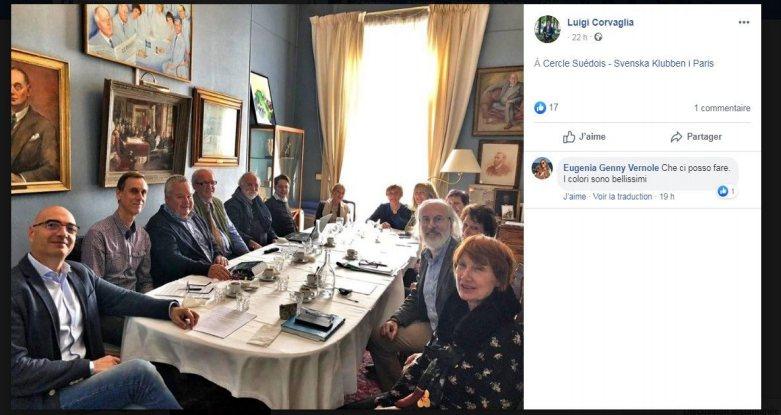
During the first four weeks of the war in Ukraine, Russian FECRIS associations have been actively supporting the war and openly working with Russian law enforcement agencies to gather information on anyone who would oppose it or even just share information on the casualties in Ukraine.
At the same time, Russia has enacted a law that established a jail sentence of up to 15 years for any person “discrediting the armed forces,” which includes speaking of “war” instead of the official Russian term, “special military operation.”
Until now, no discipline has ever been taken against Dvorkin and/or Russian FECRIS associations for their actions that spread propaganda and catalyze discrimination and persecution of religious communities.
It is known and understood that FECRIS has known about the ideology and actions of its Russian members for years, and has continued to support them, nonetheless.
FECRIS as an entity must be held accountable for the activities of its Russian
8
THE EUROPEAN TIMES • JUNE/JULY 2022 European executives of FECRIS in 2019 in Paris, with its vice-president Alexander
Dvorkin
member associations for the following reasons:
While FECRIS has been alerted about the outrageous ideology and actions of Alexander Dvorkin and Russian member associations for years, it has kept Dvorkin on its board of directors, which elected him twice as Vice President, and has supported the associations all along, having never taken any disciplinary actions against any of them.
In fact, FECRIS has been actively coordinating as an entity with Russian authorities to trigger the crackdown on religious minorities since as far back as 2009—the same year it was granted “ECOSOC Special Consultative Status” by the UN.
ORGANIZATIONS
Bitter Winter, a daily magazine on religious liberty and human rights
Boat People SOS (BPSOS)
Campaign to Abolish Modern-day Slavery in Asia (CAMSA)
CESNUR, Center for Studies on New Religions
Committee for Religious Freedom in Vietnam
European Federation for Freedom of Belief (FOB)
European Interreligious Forum for Religious Freedom (EIFRF)
Gerard Noodt Foundation
Human Rights Without Frontiers
Jubilee Campaign USA
The All Faiths Network UK
The Center for Studies on Freedom of Religion Belief and Conscience (LIREC)
The Orthodox Public Affairs Committee (OPAC)
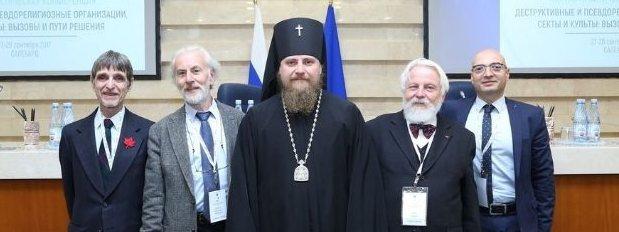
Ukrainian Association of Religious Studies (UARR) Union of Councils for Jews in the former Soviet Union (UCSJ)
The mere ideology and methodology of FECRIS, as a constant, is to use authoritative governments to trigger crackdowns on religious communities it stigmatizes as sects or cults, with no regard to their human dignity, liberty of conscience, and other fundamentals human rights.
In conclusion, FECRIS should be stripped of its ECOSOC consultative status at the UN. Its aims and activities are in complete opposition to the aims and purposes of the UN. Further, Russian FECRIS associates are actively supporting the war in Ukraine.
Thank you for your attention to this important matter.
Respectfully, ■
INDIVIDUALS
Greg Mitchell , Chair, IRF Roundtable, Chair, IRF Secretariat
Prof. Alla Aristova, Ukrainian Encyclopedia
Eileen Barker OBE FBA, Professor Emeritus, London School of Economics
Prof. Alla Boyko , Institute of Journalism, Shevchenko University of Kyiv – Ukraine
Keegan Burke, DC branch director Alliance of Religions
Prof. Yurii Chornomorets, Drahomanov University – Ukraine
Anuttama Dasa, Global Director of Communications, International Society for Krishna Consciousness (ISKCON)
Soraya M Deen, Founder, Muslim Women Speakers
Nguyen Dinh Thang, PhD, Laureate of the 2011 Asia Democracy and Human Rights Award
Prof. Vitalii Dokash, Vice-President, Ukrainian Association of Religious Studies (UARR)
Prof. Liudmyla Fylypovych, Vice-President Ukrainian Association of Religious Studies (UARR)
George Gigicos, Co-Founder and Chairman, The Orthodox Public Affairs Committee (OPAC)
Nathan Haddad, Coordinator, OIAC (Organization of Iranian American Communities)
Lauren Homer, President, Law and Liberty Trust
PhD Oksana Horkusha, Institute of Philosophy of the National Academy of Sciences of Ukraine
Massimo Introvigne, Editor in Chief, Bitter Winter, a daily magazine on religious liberty and human rights
Ruslan Khalikov, PhD, Member of the Board, Ukrainian Association of Researchers of Religion
Prof. Anatolii Kolodnyi, President, Ukrainian Association of Religious Studies (UARR)
PhD. Hanna Kulagina-Stadnichenko, Secretary, Ukrainian Association of Religious Studies (UARR)
Larry Lerner, President of Union of Councils for Jews in the former Soviet Union (UCSJ)
PhD Svitlana Loznytsia, Institute of Philosophy of the National Academy of Sciences of Ukraine
Prof. Raffaella Di Marzio, Managing Director, Center for Freedom of Religion Belief and Conscience (LIREC)
Hans Noot, President, Gerard Noodt Foundation
Prof. Oleksandr Sagan, Vice-President, Ukrainian Association of Religious Studies (UARR)
Bachittar Singh Ughrha, Founder and President, Center for defence of human rights
Prof. Roman Sitarchuk, Vice-President, Ukrainian Association of Religious Studies (UARR)
Rev. Dr. Scott Stearman, UN Representative, Baptist World Alliance
Prof. Vita Tytarenko, Grinchenko University –Ukraine
Andrew Veniopoulos, Co-Founder and ViceChairman, The Orthodox Public Affairs Committee (OPAC)
PhD Volodymyr Volkovsky, Institute of Philosophy of the National Academy of Sciences of Ukraine
Martin Weightman, Director, The All Faith Network
Prof. Leonid Vyhovsky, Khmelnytsky University of Law – Ukraine
Prof. Victor Yelenski, National Academy of Sciences of Ukraine, Former member of the Ukrainian Parliament
Honorary Member of the Parliamentary Assembly of the Council of Europe
“During the first four weeks of the war in Ukraine, Russian FECRIS associations have been actively supporting the war and openly working with Russian law enforcement agencies to gather information on anyone who would oppose it”
9EUROPEANTIMES.NEWS • JUNE/JULY 2022
Gerry Armstrong, Alexander Dvorkin (FECRIS Vice-President), Thomas Gandow and Luigi Corvaglia (member of the Board) during a FECRIS conference in Salekhard, Sibéria, 29 September 2017. In the Center, Mgr Nikolai Chashin.
THE TAI JI MEN CASE A TEST FOR TAIWAN’S COMPLIANCE WITH THE TWO COVENANTS
Taiwan made the two United Nations human rights Covenants part of its domestic legislation in 2009. Periodically, the government asks independent experts to assess its compliance with them. The last Review Conference was held in May. Problems remain in the fields of freedom of religion or belief and tax justice, as demonstrated by the Tai Ji Men case, still unresolved after more than 25 years.
By Massimo Introvigne.
Editor-in-Chief of Bitterwinter.org Italian sociologist of religions. He is the founder and managing director of the Center for Studies on New Religions (CESNUR), an international network of scholars who study new religious movements. Introvigne is the author of some 70 books and more than 100 articles in the field of sociology of religion.
TheEuropean Union is increasing its cooperation with Taiwan. It is an essential economic partner, particularly (but not only) in the field of semiconductors.
It is also a geopolitical partner for a Europe increasingly concerned with the expansionism of non-democratic superpowers.
Although we are now witnessing in Ukraine a return of traditional boots-onthe-ground warfare, it is still true that modern wars are also fought in the arena of propaganda and public relations.
Taiwan may be a reliable partner for Europe only if it maintains an image as a beacon of democracy in a region plagued by non-democratic regimes.
For reasons we all know, Taiwan is not a member state of the United Nations, but it affirmed its commitment to the U.N. human rights principles when it incorporated into its domestic law in 2009 the “two Covenants,” the International Covenant on Civil and Political Rights (ICCPR) and the International Covenant on Economic, Social and Cultural Rights (ICESCR).
In all countries, not in Taiwan only, achieving a full respect of the two Covenants is not easy. Again, Taiwan gave a positive signal when it devised a system for reviewing its achievements in
complying with the two Covenants, which involved independent international experts.
In 2011, Taiwan’s government initiated the process of preparing reports on the rights protected by both Covenants, and in 2013, an independent Review Committee with experts from nine different countries was invited to review these reports. In 2013 and 2017, the experts examined the government’s reports and formulated their observations and recommendations. A review by the experts of the government’s 2020 answers to the second report was delayed because of COVID-19 until, from 9 to 13 May 2022, a Review Committee consisting of nine independent experts convened in Taipei.
On 13 May 2022, the Review Committee adopted a third set of Concluding Observations and Recommendations (COR 3), after an International Review Conference to which representatives of Taiwan’s civil society also participated. It was the first such review since the National Human Rights Commission was established in 2020.
The COR 3 show that work remains to be done to fully implement the two Covenants in Taiwan. In fact, despite the government’s claims, the two Covenants still do not play a significant role in court cases. According to the government itself, only some 100 cases mentioned them between 2015 and 2019.
Clearly, more should be done.
On the other hand, the absence in the COR 3 of any reference to freedom of religion or belief (FORB) and taxpayers’ rights is surprising. As one of the scholars who has studied and lectured extensively on the Tai Ji Men case, I would have expected that both subjects would have been discussed in the COR 3. Time and again, those who have studied the Tai Ji Men case have noted that it is not an isolated incident, and that
both FORB and tax justice seem to be problems worth of the most serious consideration when assessing the situation of human rights in Taiwan.
During the five-day discussion, several NGO representatives and scholars pointed out to the above problems and referred to the Tai Ji Men case.

Three main problems emerged.
First, Taiwan has a National Human Rights Commission but how it exactly works remains unclear, particularly when confronted with cases involving the National Taxation Bureau and the Administrative Enforcement Agency. In the Tai Ji Men case, a complaint was treated by the Commission by simply asking the accused executive branch to prepare a letter, and then using that letter to answer the complainants. Second, human rights problems connected with tax justice remain unaddressed by the Commission and by COR 3. A traffic fine of NT$18,000, resulted in a seizure and foreclosure of the offender’s house, valued at NT$2.5 million.
A taxpayer was restricted from leaving the country indefinitely, and had to remain abroad for nine years, resulting in a divorce. While the Ministry of Finance has subsequently reduced the period of restriction of leaving the country to five years, the Administrative Enforcement Agency is still allowed to place residence restrictions on people whose tax debt reached about US $3,500, with no limitation on duration.
Another example is the case of Dr. L. He is a renowned scientist who returned to Taiwan and applied for a patent worth $10 million as the company’s capital, with the approval of the authorities, and was then taxed as if the capital contribution was income. He went bankrupt and lost his patents and business.

The number of interpretations of the tax law that have been declared unconstitutional is so high that it evidences a systemic lack of application of the two Covenants. The Taxpayer Protection Act of 2017 created the Taxpayer Protection Officer, but these officers are not really independent.
They are tax bureaucrats who serve parttime and return to their original positions after two years. In general, the system of bonuses given to tax bureaucrats incentives them to issue ill-founded tax bills and to violate taxpayers’ human rights. It should be deeply reformed or eliminated.
The system also allows the tax authorities to maintain the original tax bills
10
THE EUROPEAN TIMES • JUNE/JULY 2022 Tai Ji Men dizi told called the attention on their case of those participating in the revision of Taiwan’s compliance with the two human rights Covenants
indefinitely, even after court decisions have established that they are ill-founded.
In the Interpretation Letter Orders issued by Ministry of Finance in 1961, 1978, and 1979, the original tax bill and the new double-reviewed tax bill issued by the National Taxation Bureau following the review coexist.
The revocation of the original sanction in a subsequent petition or an administrative court decision is a “revocation of the reexamined tax bill,” but does not revoke the “original tax bill.”
The consequence is that, even if the taxpayer wins the case several times, the original tax bill remains.
Additionally, the citizens’ right to request a tax refund has been subject to a time limit of 15 years, when there was previously no time limit for requesting a refund for an incorrect taxation by tax agencies.
The laws on disqualifying judges who have already served in previous stages of a case also needs to be amended, and they have created serious problems in tax cases. Tax injustice is not a technical problem but a serious violation of human rights and of the two Covenants.
A second area discussed in the conference is transitional justice, i.e., the restoration of rights violated by the previous nondemocratic regime after a transition to democracy. The current President of Taiwan, Tsai Ing-Wen, made transitional justice for victims of past Taiwanese authoritarian and post-authoritarian
regimes a priority of her administration.
This is commendable, but provisions on transitional justice only refer to human rights violations perpetrated until November 6, 1992.
However, these violations continued even after that date, as the Tai Ji Men case demonstrates.
A third area concerns the laws regulating the rights of assembly and to hold peaceful demonstrations.
While amendments have been promised, the current laws still give the police a broad scope to deny authorizations.
Contrary to what the government reports, such denials are frequent. In general, freedom of speech and of peaceful protest continues to be unduly restricted.
Foreign scholars have commented on the case of Ms. Huang, a protester on the Tai Ji Men tax case, who was detained in 2020 just for holding a sign a bureaucrat regarded as offensive.
The Tai Ji Men case is a blatant and unresolved case of human rights violations, on which a significant scholarly literature exists both in Taiwan and internationally.
Tai Ji Men is a “menpai” (similar to a school) teaching qigong, martial arts, and self-cultivation whose master, his wife, and two members were detained in 1996, accused of fraud, tax evasion, and even, absurdly, of “raising goblins” by a prosecutor called Hou Kuan-Jen.
In 2007, a final decision of the court of third instance recognized them as not guilty of any crime, including tax evasion, and they received national compensation for the unjust detention.
However, not only was Prosecutor Hou never punished for his violations of the law in the Tai Ji Men case, but based on his theories that were declared unfounded in 2007, the National Taxation Bureau continued to issue tax bills and finally maintained the one for the year 1992.
Based on this bill, in 2020 the National Enforcement Agency auctioned off unsuccessfully and confiscated land intended for a Tai Ji Men self-cultivation
center. This generated mass protests. The case includes several egregious violations of human rights, and any serious assessment of Taiwan’s compliance with the two Covenants should investigate it.
The Tai Ji Men case is not about taxes only. It is a case where rogue bureaucrats and politicians first tried, unsuccessfully, to destroy a spiritual movement accused of not supporting the powers that be, then, frustrated by their legal defeats, continued to harass it through taxes.
The case is at the crossroads of religious liberty and tax justice, and is a crucial test for Taiwan’s democratic achievements. ■
 Tai Ji Men performances bring traditional Chinese culture in all continents
Tai Ji Men performances bring traditional Chinese culture in all continents
11
It is time for Taiwan to fully implement the two Covenants, including in the crucial areas of freedom of religion or belief and tax reform.
Solving the decade-old Tai Ji Men case would persuade Europe and the international community that Taiwan is seriously dealing with the remnants of its authoritarian past and affirming democracy and human rights in all fields.
EUROPEANTIMES.NEWS • JUNE/JULY 2022
15 JEHOVAH’S WITNESSES SENTENCED TO PRISON TERMS SINCE 1 JANUARY IN RUSSIA
20 January 2022:
By Willy Fautre, Director and Founder of Human Rights Without Frontiers International.
Therelease of the Danish Jehovah’s Witness Denis Christensen in late May after five years spent in prison which made the headlines in the international media is the tree that hides a forest: the sentencing of 15 Jehovah’s Witnesses to prison terms since January 1 and the presence of over 80 Jehovah’s in Russian prisons for several years.
Indeed, the persecution of Jehovah’s Witnesses goes on unabated in Russia. Two of them were sentenced to heavy prison terms on the eve of the release of Christensen: Andrey Vlasov, a handicapped person, to 7 years and Lyudmila Shchekoldina to 4 years and 1 month.
Jehovah’s Witnesses sentenced to prison terms in Russia in 2022
23 May 2022:
Andrey Vlasov, 53 years old (7 years)
23 May 2022:
Lyudmila Shchekoldina, 45 years old (4 years and 1 month in a penal colony)
26 April 2022:
Andrey Ledyaikin, 34 years old (2 years and 2 months)
19 April 2022:
Konstantin Samsonov, 45 years old (7 years 1/2 years)
18 March 2022:
Valeriy Rogozin, 60 years old (6 years and 5 months in a penal colony)
Denis Peresunko, 54 years old (6 years and 6 months)
Sergey Melnik, 57 years old (6 years in a penal colony)
Igor Egozaryan, 57 years old (6 years in a penal colony)
07 February 2022:
Yuriy Saveliyev, 68 years old (6 years + 1 year of restricted freedom)
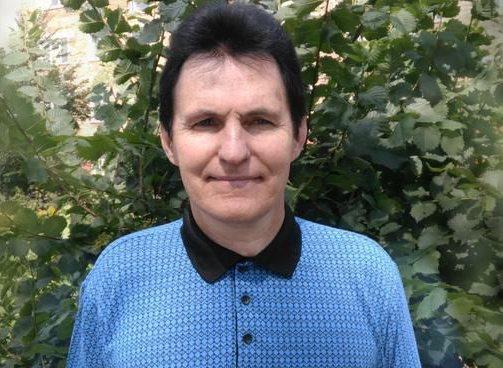
02 February 2022
Anatoliy Gorbunov, 64 years old (6 years)
25 January 2022:
Anna Safronova, 57 years old (6 years)
Yevgeny Korotun, 52 years old (7 years + 2 years of restricted freedom)
20 January 2022:
Andrei Kolesnichenko, 52 years old (4 years + 1 year of restricted freedom)
19 January 2022:
Alexei Ershov, 68 years old (3 years)
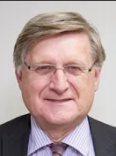
17 January 2022:
Maksim Beltikov, 42 years old (2 years)
Andrey Vlasov, a disabled Jehovah’s Witness sentenced to 7 years in prison
On May 23, 2022, the judge of the Central District Court of Prokopyevsk Pavel Kotykhov found 53-year-old Andrey Vlasov guilty of organizing the activities of an extremist community and sentenced him to seven years in prison. He was taken into custody in the courtroom.
Addressing the court with the last word, Vlasov said: “My physical condition is limited . . . Due to stiffness in movement, without outside help, I cannot take care of my legs: put on socks, take care of my feet and toes. All this is done by my dear [wife] Natasha. I am in constant need of medical treatment and supervision.”
In July 2020, Ivan Sablin, an investigator with the Federal Security Service of Russia for the Kemerovo Region—Kuzbass, opened a criminal case against Andrey Vlasov. Ten days later, the FSB searched his house and workplace. The investigation went on for almost a year. In June 2021, the Vlasov case was submitted to the Central District Court of the city of Prokopyevsk. Although there is not a single victim in the case, the prosecutor asked the court to sentence the believer to 8.5 years in prison.
Vlasov spent two days in isolation, a year and 10 months he was under house arrest. Andrey said: “I am limited in movement, my life revolves on 30 square meters of an apartment.” Despite the fact that the believer never violated the detention regime, the court repeatedly extended his preventive measure. All this had a negative impact on his health, however, the court continued to restrict Vlasov from visiting medical institutions.
The verdict has not entered into force and can be appealed. The believer insists on his complete innocence.
In the Kemerovo Region, 14 Jehovah’s Witnesses are persecuted for their faith. Three of them received suspended
sentences. Sergey Britvin and Vadim Levchuk have already served their terms in a penal colony.
Russian law enforcers mistakenly interpret the usual exercise of the constitutional rights of believers as extremist activity. Although the Supreme Court of the Russian Federation banned the activities of legal entities of Jehovah’s Witnesses, this court did not in itself prohibit the practice of this religion.
In the Krasnodar Territory, the Court sent a woman to a penal colony for four years
has recently deteriorated and she needs a surgery, the prosecutor asked the court to find the believer guilty under Articles 282.2 (1.1), 282.2 (2) of the Criminal Code of the Russian Federation and sentence her to 4.5 years in prison.
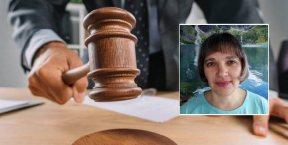
The criminal case against Lyudmila Shchekoldina was initiated on April 23, 2020. A week later, a series of searches took place in the homes of Jehovah’s Witnesses in the Krasnodar Territory, and Lyudmila also became a victim. The accusation against the believer was based on a report by intelligence agent Ilchenko that the woman tried to involve him in the activities of an extremist organization. This is how he described their conversations about the Bible.
On May 23, 2022, Olga Marchenko, a judge of the Pavlovsky District Court of the Krasnodar Territory, sentenced 45-year-old Lyudmila Shchekoldina to four years and one month in a penal colony. The woman was taken into custody in the courtroom. The court equated her ordinary religious practices with participation in the activities of an extremist organization and involving others in it.
The verdict has not entered into force and can be appealed. Shchekoldina insists on her complete innocence.
Although Lyudmila Shchekoldina’s health
The case of Shchekoldina was investigated by the investigative department of the Federal Security Service of Russia for the Krasnodar Territory for a year. On May 13, 2021, the case went to court. It was examined by Judge Olga Marchenko of the Pavlovsky District Court of the Krasnodar Territory, the same judge who sentenced one of Jehovah’s Witnesses, Vladimir Skachidub, to 4 years in prison.
Russian human rights activists and the world community consider the criminal prosecution for the faith of Jehovah’s Witnesses incompetent and strongly condemn it.
Andrey Ledyaikin sentenced to 2 years and 2 months in prison
On 26 April 2022, the Seversky City Court of the Tomsk Region sentenced Andrey Ledyaikin to 2 years and 2 months in prison.
12 THE EUROPEAN TIMES • JUNE/JULY 2022
In July 2020, FSB and Investigative Committee officers, accompanied by two OMON fighters, arrived at Andrey Ledyaikin’s place of work, in the administration of Seversk, to pick up a believer for a search of his home. After the Seversk Investigation Department opened a criminal case against Ledyaykin in March 2021, he was forced to resign. Three days later, the court chose a preventive measure for him in the form of a written undertaking not to leave the place and proper behavior.
In June 2021, the Ledyaykin case was submitted to the Seversky City Court of the Tomsk Region. It was considered by Judge Yekaterina Soldatenko. The accusation was based on the testimony of FSB agent Kira Klisheva, who testified against 5 more Jehovah’s Witnesses in Seversk. The prosecutor requested 4.5 years in a general regime colony for the believer.
Jehovah’s Witness Konstantin Samsonov sentenced to 7.5 years in prison
On April 19, 2022, Maksim Mazikin, judge of the Neftekumsk District Court of the
Stavropol Territory, sentenced Konstantin Samsonov to 7.5 years in prison, he was arrested in the courthouse. Aleksandr Akopov and Shamil Sultanov each received a fine of 500,000 rubles, which has already been paid off on account of the time served in the pre-trial detention center. A written undertaking not to leave was taken from them.
1 of article 282.3 of the Criminal Code of the Russian Federation).
After a year of imprisonment, the court replaced their arrest with a ban on certain actions. For more than two years, due to the restrictions imposed, they have been forced to wear special sensors that record their movements. Akopov could not receive the medical care he needed, and Samsonov could not work in his specialty (his family lives off the savings made before his arrest).
The ECtHR, the Committee of Ministers of the Council of Europe, the UN Working Group on Arbitrary Detention are just some of the organizations condemning the repression of Jehovah’s Witnesses.

5 months in a penal colony, Peresunko to 6 years and 3 months, and Melnik and Egozaryan to 6 years in a penal colony. The verdict has entered into force, but believers can appeal it in cassation.
When the criminal prosecution began, the wife of Denis Peresunko died of COVID-19, and the believer himself was placed in a pre-trial detention center for 5 months. He was on disability and the resulting stress exacerbated his condition. A long stay in the pre-trial detention center also seriously undermined the health of Valeriy Rogozin. Egozaryan and Melnik are raising their underage sons.
Even before the initiation of a criminal case, Neftekumsk believers faced an armed raid during a friendly meeting, surveillance and repeated searches. In December 2018, Samsonov, Akopov and Sultanov ended up in a pre-trial detention center. A. V. Astakhov, senior investigator of the FSB department of the Stavropol Territory, accused them of extremism (part 1 of article 282.2 and part
An appeal in Volgograd upholds the sentence of four Jehovah’s Witnesses
On March 18, 2022, the Volgograd Regional Court upheld the conviction of Valeriy Rogozin, Igor Egozaryan, Denis Peresunko and Sergey Melnik.
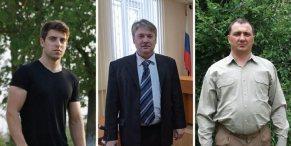
In September 2021, the court of first instance sentenced Rogozin to 6 years and
In 2019, law enforcement officers arrested four believers and accused them of organizing extremist activities, and later two of them — Peresunko and Rogozin — also of financing it. At the same time, recordings of religious meetings of Volgograd Jehovah’s Witnesses, at which they discuss Bibles, sing songs and pray to God, were used as material evidence of their “guilt.”
Source of the detailed individual cases and the pictures:
 Photo: Alexander Akopov, Konstantin Samsonov and Shamil Sultanov
Photo: Alexander Akopov, Konstantin Samsonov and Shamil Sultanov
https://jw-russia.org/prisoners.html ■ 13EUROPEANTIMES.NEWS • JUNE/JULY 2022
In the photo: Denis Peresunko, Valery and Marina Rogozins, Sergey and Anna Melnik, Igor and Evgenia Egozaryan
WWW.HRWF.EU/PRISONERS-DATABASE
14 THE EUROPEAN TIMES • JUNE/JULY 2022 Wednesday 6th July: Day Two Morning Session Prevention ‘Early warning, early action’ Protection ‘Sharing global knowledge, delivering local action’ Promotion ‘Building FoRB for the future’ Women and Girls: Breaking Barriers with FoRB Inspiring Parliamentarians Promoting FoRB with Interreligious and Inter-convictional dialogues Break FoRB and the media TBC Innovation Hub: FoRB in the Future Tuesday 5th July: Day One Morning Session Opening plenary: ‘FoRB: a right for everyone, everywhere’ Promoting FoRB in the face of global challenges National pledges Afternoon Session Prevention ‘Early warning, early action’ Protection ‘Sharing global knowledge, delivering local action’ Promotion ‘Building FoRB for the future’ Early warning and atrocity prevention Beyond the constitution: building blocks and incentives for effective protection FoRB and education Break FoRB in times of conflict and insecurity Leaving no-one behind: tackling discrimination Promoting FoRB in a digital world Afternoon Session Prevention ‘Early warning, early action’ Protection ‘Sharing global knowledge, delivering local action’ Promotion ‘Building FoRB for the future’ Civil society as a driver for change Protecting cultural and religious heritage Engaging the next generation Break Closing plenary panel discussion: reflections and the way forward
US COMMISSION ON INTERNATIONAL RELIGIOUS FREEDOM RELEASES 2022 ANNUAL REPORT
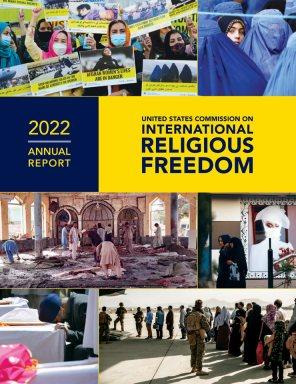
gious groups in Afghanistan, and to desig nate Nigeria as a country of particular con cern.”
USCIRF’s independence and bipartisanship enables it to unflinchingly identify threats to religious freedom abroad. In its 2022 Annual Report, USCIRF recommends 15 countries to the State Department for des ignation as “countries of particular concern” (CPCs) because their governments engage in or tolerate “systematic, ongoing, and egregious violations.” These include 10 that the State Department designated as CPCs in November 2021: Burma, China, Eritrea, Iran, North Korea, Pakistan, Russia, Saudi Arabia, Tajikistan, and Turkmenistan—as well as five others: Afghanistan, India, Nige ria, Syria, and Vietnam.
Washington, D.C. – The United States Commission on International Reli gious Freedom (USCIRF) released its 2022 Annual Report documenting devel opments during 2021, including significant regress in countries such as Afghanistan and the Central African Republic (CAR). USCIRF’s 2022 Annual Report provides rec ommendations to enhance the U.S. govern ment’s promotion of freedom of religion or belief abroad.
The report covers discrimination and op pression against members of the follow ing faiths: Baha’i, Buddhist Hoa Hao, Bud dhist Tibetan, Catholics, Jehovah’s Witness, Orthodox, Protestants, Erfan-e Halgheh Practitioner, Falun Gong, Hindu, Humanist, Jewish, Muslim Ahmadiyya, Muslim Shi’a, Muslim Sufi, Muslim Sunni, Church of Scien tology, and others.
The report also notes USCIRF recommen dations implemented by the U.S. govern ment—including the designation of Russia as a country of particular concern, the im position of targeted sanctions on religious freedom violators, and genocide determi nations for atrocities perpetrated by the Chinese government against Uyghur and other Turkic Muslims and by the Burmese military against Rohingya Muslims.
“We are disheartened by the deterioration of freedom of religion or belief in some countries— especially Afghanistan under the Taliban’s de facto government since August. Religious minorities have faced ha rassment, detention, and even death due to their faith or beliefs, and years of progress toward more equitable access to educa tion and representation of women and girls have disappeared,” USCIRF Chair Nadine Maenza said.
“Meanwhile, USCIRF is encouraged by the Biden administration’s continued prioriti zation of international religious freedom during its first year. To continue this prog ress, we strongly urge the administration to implement USCIRF’s recommendations—in particular, to expand its Priority 2 refugee designation to grant access for at-risk reli
For the first time ever, the State Depart ment designated Russia as a CPC in 2021, which USCIRF had been recommending since 2017. Regrettably, the State Depart ment removed Nigeria as a CPC though it had been added the previous year and reli gious freedom conditions remain dire.
The 2022 Annual Report also recommends 12 countries for placement on the State De partment’s Special Watch List (SWL) based on their governments’ perpetration or tol eration of severe violations. These include three that the State Department placed on that list in November 2021: Algeria, Cuba, and Nicaragua—as well as nine others: Azerbaijan, CAR, Egypt, Indonesia, Iraq, Kazakhstan, Malaysia, Turkey, and Uzbeki stan. In 2021, USCIRF removed CAR from its SWL recommendations because incidents of religious targeting and violence had de creased during 2020, but these trends have since been reversed.
The 2022 Annual Report further recom mends to the State Department seven non-state actors for redesignation as “en tities of particular concern” (EPCs) for sys tematic, ongoing, egregious violations. The State Department designated all seven of these groups as EPCs in November 2021: al-Shabaab, Boko Haram, the Houthis, Hay’at Tahrir al-Sham (HTS), Islamic State in the Greater Sahara (ISGS), Islamic State in West Africa Province (ISWAP or ISIS-West Africa), and Jamaat Nasr al-Islam wal Mus limin (JNIM).
“Throughout the past year, the U.S. gov ernment continued to condemn abuses of religious freedom and hold perpetrators accountable through targeted sanctions and other tools at its disposal. Moving for ward, the United States should take addi tional steps to support freedom of religion or belief around the world. USCIRF’s 2022 Annual Report makes recommendations on how Congress and the Executive Branch can further advance this universal, funda mental human right,” USCIRF Vice Chair Nury Turkel stated.
In addition to chapters with key findings and U.S. policy recommendations for these 27 countries, the annual report describes
and assesses U.S. international religious freedom policy overall. The report also highlights important global developments and trends related to religious freedom during 2021—including in countries that do not meet the criteria for CPC or SWL recommendations. These include: the COVID-19 pandemic and religious freedom, blasphemy and hate speech law enforce ment, transnational repression, religious in tolerance in Europe, deteriorating religious freedom conditions in South Asia, and polit ical upheaval that raises religious freedom concerns.
The report also includes sections highlight ing key USCIRF recommendations that the U.S. government has implemented from USCIRF’s 2021 Annual Report, discussing
Council of Europe publishes Updated Thematic Factsheet on Freedom of Religion
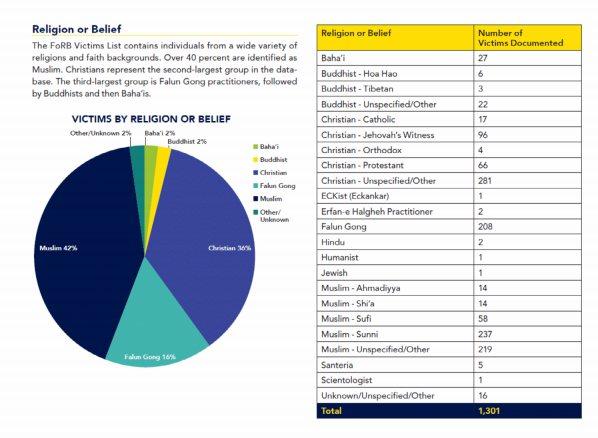
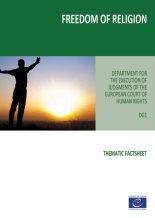
The Execution Department has published an updated thematic factsheet on the execution of ECHR judgments concerning freedom of religion
The European Court has underlined that freedom of religion is one of the foundations of a democratic society within the meaning of the Convention. Pluralism, which is intrinsically linked to democratic society,
human rights violations perpetrated based on the coercive enforcement of interpreta tions of religion, and providing details on individuals included in USCIRF’s Freedom or Religion or Belief (FoRB) Victims List and Religious Prisoners of Conscience Project.
Religious movements included in the re port, being the target of religious discrimi nation by states are:
Baha’i – Buddhist Hoa Hao – Buddhist Ti betan – Catholics – Jehovah’s Witness – Or thodox – Protestant – Eckankar – Erfan-e Halgheh Practitioner – Falun Gong – Hindu – Humanist – Jewish – Muslim Ahmadiyya –Muslim Shi’a – Muslim Sufi – Muslim Sun ni – Santeria – Church of Scientology – And others ■
depends on it.
Over the years the Court has developed a rich case-law concerning freedom of religion while the execution by States of the relevant judgments has been supervised by the Committee of Ministers.
The factsheet sets out several examples of measures adopted and reported by States, in the context of the execution of the European Court’s judgments, in order to safeguard and protect freedom of religion.
The factsheet focuses on the following major issues: recognition and organisation of religious communities; conscientious objection; religious discrimination; freedom of religion in courts and education; freedom of religion in civil law matters and of persons in detention. ■
15EUROPEANTIMES.NEWS • JUNE/JULY 2022
EDWIN CHR. VAN DRIEL
THE SENIOR ALBERIGO AWARD
Rethinking Paul. Protestant Theology and Pauline Exegesis (University of Cambridge Press, 2021)
In this book, Edwin van Driel analyzes contemporary Pauline exegesis and its implications for Protestant theology. Over the last several decades, scholars have offered fresh interpretations of the apostle, including the New Perspective on and the apocalyptic reading of Paul. Van Driel juxtaposes these proposals with traditional Protestant understandings of Paul and
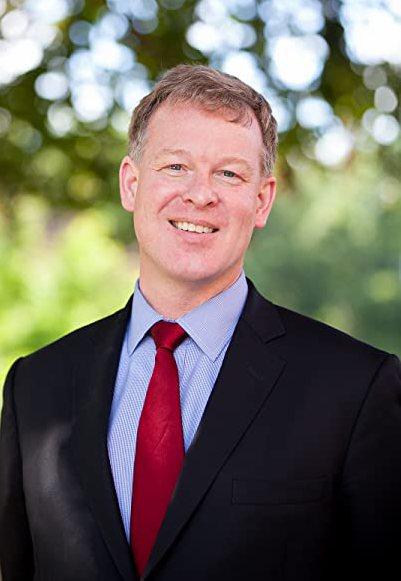
argues that the crucial difference between these two readings lies not in how one understands isolated Pauline notions but in different assumed narrative substructures of the apostle’s writings. He explores how these new exegetical proposals deepen, broaden, enrich, and challenge traditional Protestant theological paradigms, as well as how they are situated alongside current contextual conversations on theological anthropology, social imagination, and the church’s mission. Van Driel’s volume opens up new avenues for interdisciplinary exploration and cooperation between biblical scholarship and theology.■
Sarah Shortall (University of Notre Dame)
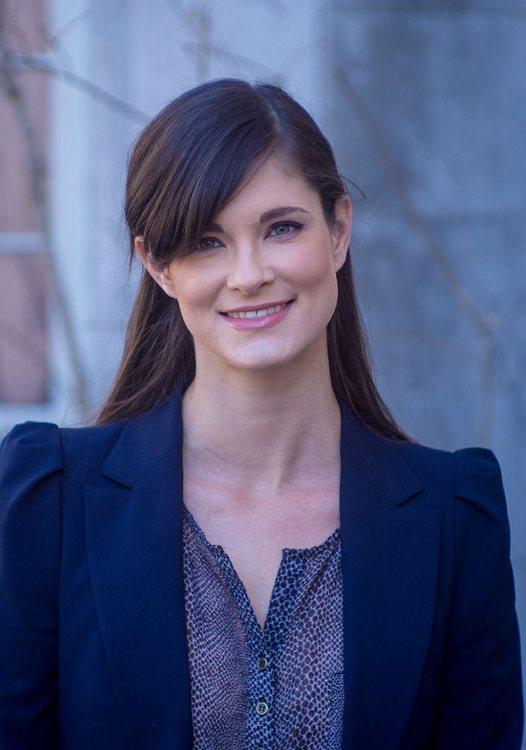
Soldiers of God in a Secular World. Catholic Theology and Twentieth-Century French Politics (Harvard University Press, 2021)
Secularism has been a cornerstone of French political culture since 1905, when the republic formalized the separation of church and state. At times the barrier of secularism has seemed impenetrable, stifling religious actors wishing to take part in political life. Yet in other instances, secularism has actually nurtured movements of the faithful. Soldiers of God in a Secular World explores one such case, that of the nouvelle théologie, or new theology. Developed in the interwar years by Jesuits and Dominicans, the nouvelle théologie reimagined the Church’s relationship to public life, encouraging political activism, engaging with secular philosophy, and inspiring doctrinal changes adopted by the Second Vatican Council in the 1960s.
Nouveaux théologiens charted a path between the old alliance of throne and altar and secularism’s demand for the privatization of religion. Envisioning a Church in but not of the public sphere, Catholic thinkers drew on theological principles to intervene in political questions while claiming to remain at arm’s length from politics proper. Sarah Shortall argues that this “counter-politics” was central to the mission of the nouveaux théologiens: by recoding political statements in the ostensibly apolitical language of doctrine, priests were able to enter into debates over fascism and communism, democracy and human rights, colonialism and nuclear war. This approach found its ighest expression during the Second World War, when the nouveaux théologiens led the spiritualresistance against Nazism. Claiming a powerful public voice, they collectively forged a new role for the Church amid the momentous political shifts of the
16 THE EUROPEAN TIMES • JUNE/JULY 2022
Edwin Chr. van Driel (Pittsburgh Theological Seminary)
WINS
#EUARE2022
twentieth century.■ SARAH SHORTALL WINS THE JUNIOR ALBERIGO AWARD #EUARE2022 The awarding ceremony will take place on Wednesday, June 22, 16:30, at FSCIRE, within the framework of the panel 1962-2022: Vatican II sixty years after. New contributions and perspectives of the historical studies on the Council.
NEW RELIGIOUS MOVEMENTS IN THE ITALIAN SOCIO-JURIDICAL CONTEXT
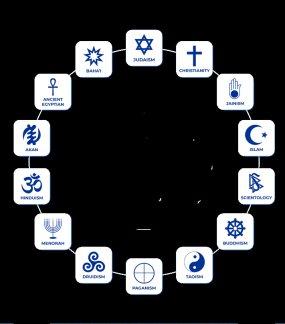
VIA ANDREATTA, 8 | AULA N
Italy is a multicultural and multi-religious country. Over the years both the number and the visibility of religious organizations present on the national territory have grown exponentially.
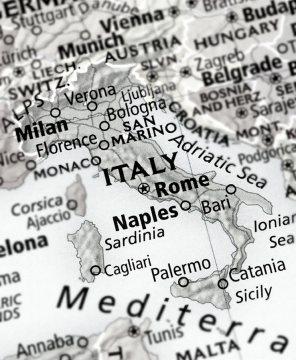
Therefore it is necessary to reserve a correct legal treatment, not only to religious denominations with well-established socio-anthropological traditions, but also in favor of recently established religious movements. Hence the need to reverse the angle of observation, enhancing the point of view, beliefs and values of the religious actors involved in the most recent institutionalization processes in the Italian legal system in an emic perspective. The
panel assuming this particular perspective of analysis, will therefore host a multivoiced dialogue between representatives of religious groups and jurists on the subject of organizational autonomy and the modalities for regulating relations between the State and religious confessions.
Chair: Antonio Fuccillo (Università della Campania “Luigi Vanvitelli”)
Speakers:
* Germana Carobene (Università di Napoli Federico II), Reflections on the new religious movements in Italy
* Fabrizio D’Agostino (Chiesa di Scientology
d’Italia), Church of Scientology and the Italian legal system
* Gianfranco Macrì (Università di Salerno), A new governance of religious freedom in Italy is needed

* Guido Morisco (Comunità bahá’í d’Italia), Italian Baha’í Community in the Italian legal context
* Giancarlo Anello (Università di Parma), Defining Religion(s) by Legal Terms: A View from the Eastern World
* Vincenzo Di Ieso (Chiesa Taoista d’Italia), Enculturation of Religious Identity: Dialogue between Faith and State
THE STRUGGLE FOR CONFESSION:
CHALLENGES TO THE SECRET OF

AND OTHER FORMS OF RELIGIOUS SECRET
The widely reviewed book Religious Confession and Evidential Privilege in the 21st Century (Cleveland, Queensland: Shepherd Street Press, 2021), edited by Mark Hill and Keith Thompson, is the most comprehensive treatment to date of a crucial issue: whether the legal statutes protecting ministers of all religions from disclosing what they have learned from parishioners within the context of a clergypenitent relationship will, and should, survive the present assault by those who want to abrogate them in the wake of the

pedophile Catholic priests scandals. The panel will expand beyond the case studies of the book to address the wider question of whether in the 21st century the idea that something in religion (be it a ritual or the content of a confession) should be kept secret will succumb to a neoSimmelian criticism of secrecy on general or will continue to be socially accepted and protected by the laws.
Chair: Pin Chia Huang (National Taiwan University)
Speakers:
* Rosita Soryte (European Federation for Freedom of Belief-FOB), Religions, Spirituality, and Secrecy:
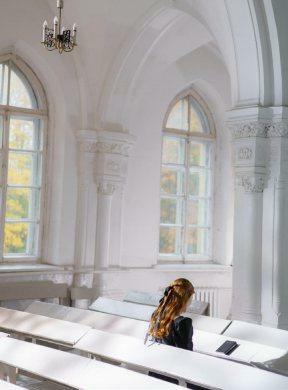
* Is “Secret” Becoming a Dirty Word?
* Massimo Introvigne (CESNUR), Criticizing the Secret of Confession: Legal and Sociological Aspects
* Eric Roux (European Office Church of Scientology), Scientology, Auditing, and Confessional Privilege
CONTENTS INCLUDE: I. L. Ron Hubbard, the Church of Scientology and Religious Freedom II. Universal Declaration of Human Rights and International Bill of Human Rights III. A Universal Human Right IV. Rising Tide of Global Assault V. Far–reaching and Profound VI. Absolute and Unconditional Right of Belief VII. Two Dimensions VIII. Freedom to Manifest a Religion or Belief IX. Rights of Religious Minorities X. Rights of Parents and Children XI. Freedom from Coercion XII. Freedom from Discrimination XIII. Rights of Employers, Employees and Volunteers EUROPEANTIMES.NEWS • JUNE/JULY 2022 17EVENTS
21st June - 13:30-15:45 PLESSO BELMELORO,
LEGISLATIVE
CONFESSION
22nd June - 11:00-12:00 PLESSO BELMELORO, VIA ANDREATTA, 8 | AULA O Free download Available in 17 languages The Church of Scientology booklet, What is Freedom of Religion?, is designed to inform the public regarding the detailed and complex nature of the right to freedom of religion for believers and religious organizations of every faith.
FREEDOM OF RELIGION OR BELIEF IN SHARP DECLINE IN ASIA, A EUROPEAN PARLIAMENT REPORT SAYS
reappoint a Special Envoy for the promotion and protection for the freedom of religion or belief as soon as possible.“
The report, which has just been published by the FoRB intergroup, selects 10 countries that, according to the NGOs that participated in the survey, are the countries where religious freedom is increasingly restricted.
However, it does not include violations of FoRB in Europe, a long demanded mandate by different Civil Society organizations who believe the EU could be stronger in the influence abroad “if many of the EU member states would have a more strict and broad respect for the local minorities” said one of the NGOs consulted by The European Times.
FoRB in some Non-EU countries
A couple of them are Communist countries and the others have a dominant religion enjoying the support of the state and public institutions, either Sunni or Shia Islam, Hinduism or Buddhism.
These Asian countries total a population of 3.4 billion people, which represents 42% of the world population. Religious minorities in such contexts are vulnerable to all sorts of arbitrary restrictions, discrimination, social hostility, violence and killings“.
Pakistan, where the majority of the Sunni population is “aggressive towards minorities and uses anti-blasphemy laws as a tool to regulate private affairs against those who are ‘inconvenient’”, and finally Algeria, Myanmar, Eritrea, Vietnam and Turkey where Erdogan promotes Sunni Islamisation policies to the at the expense of atheists, Christians and Jews.
Ina statement published by the European Parliament’s Intergroup on Freedom of Religion or Belief and Religious Tolerance ( FoRB & RT ), they inform of “the presentation of the periodic report published by the Intergroup” which was held on Tuesday 22nd March.

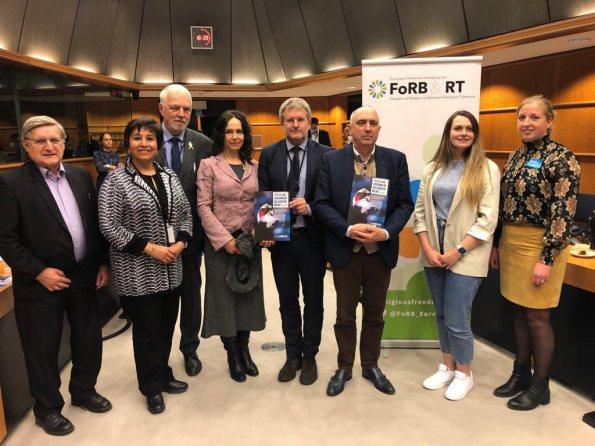
The FoRB report, which outlines the “state of the art of religious freedom in the world” and discusses the “European institutions’ actions to protect religious freedom”, was drafted in collaboration with some of the most important associations and NGOs in the sector, involving “different representatives of the faiths, from Christian associations to Baha’i, Muslims and Jews”.
Among the speakers, in addition to the co-chairs of the intergroup Carlo FIDANZA (FdI- Ecr) and Peter Van Dalen (EPP), who opened the session, the attendees could find Oksana Oleynikova, director of the Good Shepherd children’s home in Ukraine, who “updated those present on the current situation in Ukraine”, Iannis Argyropoulos, Head of Unit for Asia-Pacific and South Asia Regional Affairs of the European External Action Service; Marcela Szymanski, editorin-chief of the ”Religious Freedom in the World” dossier at the Pontifical Foundation Aid to the Church in Need and Willy Fautre, Director of Human Rights Without Borders. Co-chair Carlo FIDANZA recalled that among those persecuted for their faith, “over 360 million Christians experience a high level of persecution and discrimination“.
“Today the eyes of the world are rightly focused on the martyrdom of Mariupol” FIDANZA said during his speech of the launching of this report. “With this report, we want to turn the spotlight on another martyrdom that takes place every day in total indifference and which affects millions of believers, especially Christians, who are
persecuted worldwide for their beliefs”.
“Europe” – concluded FIDANZA – “that perhaps for the first time it is realising how important it is to have a foreign policy, must forcefully put the issue of religious freedom in all bilateral negotiations with countries where this is not guaranteed”
Peter van Dalen, the other co-chair who has been on the business of FoRB for quite a while, said: “The EU needs to enhance its efforts in promoting and protecting the freedom of religion or belief, as religious freedom is deteriorating in many countries. In EU policy, too often economic interests prevail over human rights commitments. Therefore, the European Commission must
Among the countries covered in the report is China, where forced Sinicisation is underway “at the expense of Uighurs, Falun Gong, Christians and, obviously, Tibetan Buddhists” says the statement published by the Intergroup. “In China, the government is becoming more and more authoritarian in all its policies, enforcing a so-called sinicization of society, in which religion is seen as a threat to the official atheist ideology,” said Willy Fautré, Director of Human Rights Without Frontiers.
Fautre said also in the Parliament that “One thing is very disturbing in the report. Among the 11 countries selected by the Intergroup for the deterioration level of religious freedom, 8 are from Asia: Afghanistan, China, India, Iran, Myanmar, Pakistan, Turkey and Vietnam.
FoRB in Africa
Nigeria, where “President Buhari has worked to foster an Islamisation of the country and there are continuous persecution by jihadist groups such as Boko Haram, Iswap and local warlords, mainly at the expense of Christians,” said the press release.
Future actions
In the questions and answers section of the launch event, MEP Carlo Fidanza responded to the question about the next steps of the Intergroup, saying that they “will continue taking the initiative to address the situation of persecuted minorities worldwide, such as our resolutions on Pakistan and cultural heritage in Nagorno Karabach, or through events” and “will keep pushing for a quick reappointment of a Special Envoy FoRB”. ■
THE EU PARLIAMENT INTERGROUP ON FORB & RT PUBLISHED ITS 2017-2021 REPORT
18 THE EUROPEAN TIMES • JUNE/JULY 2022
Since being established, the ‘FoRB Roundtable Brussels-EU’ has been known for an unparalleled commitment to advocate for Freedom or Religion or Belief issues, for people and communities of ALL faiths or not.
The FoRB Roundtable
Brussels-EU is an informal group of individuals from civil society who gather regularly to discuss FoRB issues on a non-attribution basis.
It is simply a safe space where participants gather, speak freely in sharing ideas and information, and
FREEDOM OF RELIGION OR BELIEF & MULTI-FAITH POLICY ROUNDTABLES

PURPOSE AND OVERVIEW STATEMENT
The FoRB Roundtable Brussels-EU is an informal group of individuals from civil society who gather regularly to discuss FoRB issues on a non-attribution basis. It is simply a safe space where participants gather, speak freely in sharing ideas and information, and propose joint advocacy actions to address specific FoRB issues and problems globally. Participants are free to propose initiatives regarding the protection and promotion of freedom of religion, conscience, and belief in Europe and around the world, and other participants have then the possibility to join these initiatives and self-select into coalitions of the willing on such initiatives.
The Roundtable gathers intergovernmental, international and non-governmental organisations. Civil society organisations working on freedom of religion or belief and other human rights issues, interfaith and interreligious dialogue bodies, and religious or belief communities are also encouraged to participate in the Roundtable.
The FoRB Roundtable Brussels-EU is part of a network of other Roundtables that are being established around the world – all of them independent from each other but coordinating as needed on different issues. This initial IRF Roundtable was established

propose joint advocacy actions to address specific FoRB issues and problems globally.
It’s part of an informal international network of such roundtables.
While being part of this network, the FoRB
in the Washington D.C. Participants are primarily non-government organisations though government representatives are invited to participate.
The goal of the Roundtable is to reverse the rising tide of restrictions on the free and full exercise of the universal human right to freedom of religion or belief (FoRB) that has been spreading across the world.
Reports from the European Parliament’s Intergroup on Freedom of Religion and Religious Tolerance, the European Union Special Envoy for the promotion of freedom of religion or belief outside the EU, the UN Special Rapporteur on FoRB and various national positions (such as the UK Prime Minister’s Special Envoy on Freedom of Religion or Belief) have all pointed to serious freedom of religion or belief problems in Europe and around the world.
In this direction, the purpose of the Roundtable is to advance FoRB for all by:
1. Engaging with European Union as well as national governments to make FoRB both a national and foreign policy and security priority so:
FoRB is fully integrated into national and foreign policy and security objectives, including democracy promotion,
Public diplomacy, counterterrorism, and multilateral strategies.
Roundtable Brussels-EU is completely independent in its governance.
More than 100 NGOs and governmental organisations regularly participate to the Roundtable Brussels-EU.
Participants are free to propose initiatives
E.U and national foreign policy tools are used to advance freedom of religion or belief around the world in line with relevant international and regional standards (such as the European Convention on Human Rights) and political commitments
The political institutions necessary to advance freedom of religion or belief for all are continually supported, facilitated, and protected at home and abroad.
Global levels of religious intolerance, discrimination, persecution, terrorism, and instability are significantly reduced.
2. Engaging civil society actors, religious and belief communities, academic institutions, other governments that protect and promote freedom of religion or belief, and multilateral, intergovernmental institutions to coordinate joint advocacy efforts.
3. Engaging in meaningful dialogues with governments that restrict freedom of religion or belief, so as to:
Diplomatically but persistently push factual reports that document violations of their own constitutions and/or international commitments.
• Frame the issues in their best interests, and increase mutual understanding and respect among and between religious or belief communities.
regarding the protection and promotion of freedom of religion, conscience, and belief in Europe and around the world, and other participants have then the possibility to join these initiatives and self-select into coalitions of the willing on such initiatives. ■
Agree on a process to resolve differences related to particular situations in their countries.
Create a mechanism for improvement of policies and practices, and for verification.
While participants of the FoRB Roundtable Brussels-EU continue to engage the E.U. structures and national European governments to do more to advance FoRB for all, and work with it when and where it can help, they do not rely exclusively on it to achieve the goal.
Rather, participants also reach out directly to other governments outside Europe. The meaningful dialogues they have opened with ambassadors, embassies, and delegations are designed to grow into results driven collaborations. Indeed, they are manifestations of “bottom-up” civil society engaging the “top-down” of authoritarian governments, something participants want to model in the context of multiple bilateral relations.
JOIN OUR NEWSLETTER

19EUROPEANTIMES.NEWS • JUNE/JULY 2022




20 europeantimesnews europeantimes_ europeantimesnews









 By Juan Sánchez Gil.
By Juan Sánchez Gil.




 By Robert Johnson Investigative Reporter specialized on Extremism.
By Robert Johnson Investigative Reporter specialized on Extremism.





 Tai Ji Men performances bring traditional Chinese culture in all continents
Tai Ji Men performances bring traditional Chinese culture in all continents





 Photo: Alexander Akopov, Konstantin Samsonov and Shamil Sultanov
Photo: Alexander Akopov, Konstantin Samsonov and Shamil Sultanov



















